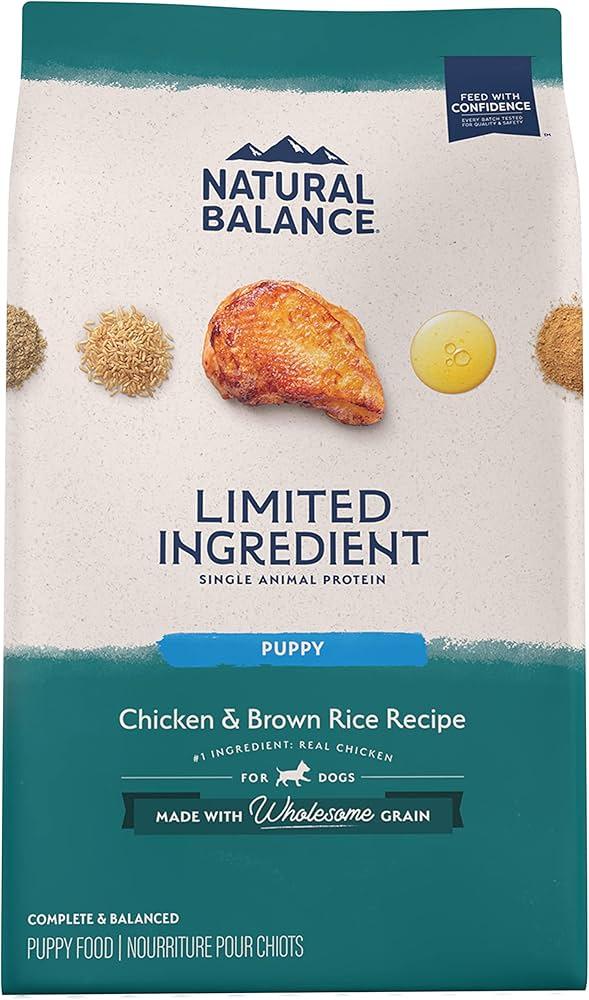Welcoming a new puppy into your home is an exciting adventure filled with playful antics, boundless energy, and the start of a lifelong companionship. However, alongside the joy and cuddles comes the responsibility of ensuring that your furry friend grows up healthy and strong. Just like human children, puppies have unique nutritional needs that differ significantly from those of adult dogs. Understanding these differences is crucial for their development and long-term health. In this article, we will explore the specific nutritional requirements for puppies compared to adult dogs, providing you with the knowledge to make informed decisions about your pet’s diet. Whether you’re a first-time puppy parent or a seasoned dog owner, this guide aims to equip you with the insights needed to nurture your canine companion at every stage of their life. So, let’s embark on this journey of learning how to best nourish your four-legged family member, ensuring they thrive from puppyhood to adulthood.
Understanding the Nutritional Needs of Growing Puppies
Puppies are in a crucial stage of development, and their dietary needs are distinct from those of adult dogs. A growing puppy requires a diet rich in protein to support muscle development, calcium and phosphorus for strong bones, and essential fatty acids like DHA for brain development. While adult dogs may thrive on a diet lower in calories and fats, puppies need a higher caloric intake due to their rapid growth and energetic lifestyle. It’s important to provide them with the right balance of nutrients to ensure they grow into healthy adults.
- Protein: Key for muscle growth and tissue repair.
- Calcium & Phosphorus: Essential for developing strong bones and teeth.
- DHA: Supports cognitive development and vision.
- Calories: Higher energy needs compared to adults to fuel their growth and playfulness.
While both puppies and adult dogs need a balanced diet, the proportions and specific nutrients vary significantly. Always consult with a veterinarian to tailor a diet plan that caters to your puppy’s specific breed, size, and health requirements. By understanding these differences, pet owners can ensure their puppies have a healthy start in life.

Balancing Protein and Energy for Optimal Puppy Growth
Ensuring your puppy receives the right balance of protein and energy is crucial for their growth and development. Puppies require a higher protein intake compared to adult dogs to support their rapidly growing muscles and tissues. Protein serves as the building block for their body, aiding in the development of healthy skin, a shiny coat, and a robust immune system. On the other hand, energy—primarily derived from fats and carbohydrates—fuels their playful antics and supports their metabolic needs.
To achieve this balance, consider the following guidelines:
- Choose a high-quality puppy food that specifies a high protein content, preferably from animal sources like chicken, lamb, or fish.
- Ensure the diet includes adequate fats for energy, but avoid excessive amounts that might lead to obesity.
- Consult with a veterinarian to tailor a diet plan that considers your puppy’s breed, size, and activity level.
- Remember that while adult dogs require less protein and energy, puppies thrive on nutrient-dense meals to support their growth spurts.
Tailoring Adult Dog Diets for Sustained Health
As our furry companions transition from their playful puppy days to mature adulthood, their dietary needs evolve significantly. Adult dogs require a balanced diet that supports their energy levels, maintains a healthy weight, and promotes overall well-being. Unlike puppies, who need nutrient-dense food to fuel their rapid growth and development, adult dogs benefit from a diet that emphasizes maintenance rather than growth.
- Protein: While puppies need a higher percentage of protein to support muscle development, adult dogs require moderate levels to maintain muscle mass and overall health.
- Fats: Essential for energy, but adults need a controlled amount to prevent weight gain.
- Vitamins and Minerals: Essential for immune function and bone health; ensure these are balanced in adult dog diets.
- Fiber: Important for digestion; adult dogs may benefit from a higher fiber content compared to puppies.
Understanding these differences is crucial in selecting the right food for your adult dog, ensuring they enjoy a long, healthy, and active life.
Essential Vitamins and Minerals for Canine Lifelong Wellness
- Calcium and Phosphorus: Puppies require a higher ratio of calcium and phosphorus compared to adult dogs to support their rapid growth and development of strong bones and teeth. As they mature, adult dogs need these minerals in a balanced proportion to maintain bone health.
- Protein: Young pups thrive on higher protein levels, which are essential for muscle development and overall growth. As dogs transition into adulthood, their protein needs decrease, but it remains a vital component to sustain muscle mass and repair tissues.
- Vitamin A: Crucial for vision and immune function, puppies need adequate amounts of Vitamin A to support their developing eyesight and immune systems. Adult dogs, on the other hand, require it to maintain these functions and support skin health.
- Omega-3 and Omega-6 Fatty Acids: These essential fatty acids play a significant role in brain development for puppies, while in adult dogs, they contribute to healthy skin, coat, and joint function.
Each life stage in a dog’s journey brings unique nutritional needs. Ensuring your furry friend receives the right balance of vitamins and minerals at every stage can lead to a healthier, happier life. While puppies require nutrient-dense diets for growth, adult dogs benefit from a balanced intake to sustain vitality and prevent age-related health issues. Tailoring their diet according to their life stage can make a world of difference in their lifelong wellness.

